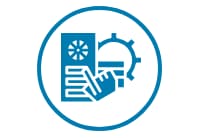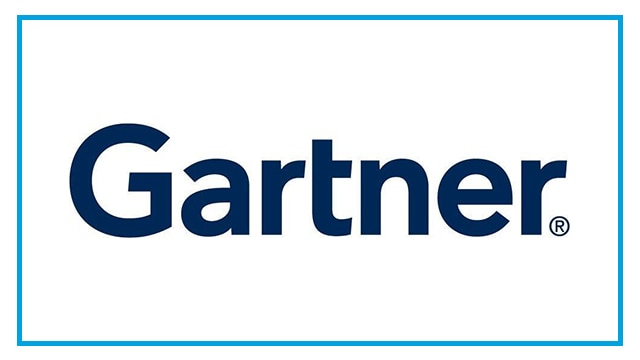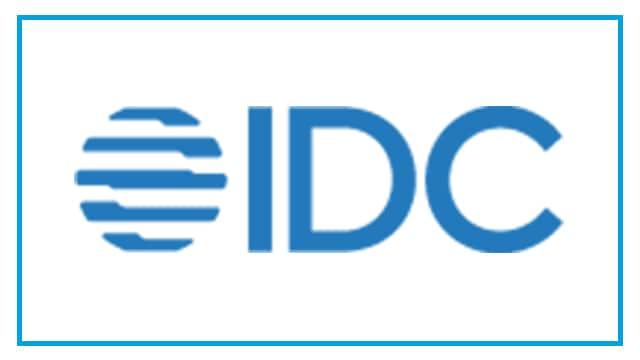Deloitte Cloud Consulting Services
Want to build resilience? Enable advanced technologies? Accelerate innovation? It starts with cloud.
Learn how our cloud services can help you bridge to the cutting edge by engineering tailored, high-impact solutions that power your purpose and create lasting value.
Explore below:
Application Modernization & Migration
Reimagine, build, and deliver apps designed for cloud success.
Application Modernization & Migration
Reimagine and rearchitect your business and IT functions with an accelerated, efficient approach to transform legacy applications.
- Cloud Migration
- Cloud Modernization
Cloud Analytics & AI
Accelerate business value with AI and insight-driven analytics.
Cloud Analytics & AI
Combine the power of cloud and advanced analytics and use insight-driven methods to better understand your business and increase and accelerate business value.
- Artificial Intelligence
- Data Analytics
- Machine Learning
Cloud Business Transformation
Evolve, innovate, and power business growth with cloud.
Cloud Business Transformation
Create sustained value across your organization by identifying the opportunities that matter most and capitalize on them systematically with cloud.
- Business Change Management
- Cloud Strategy
- Self-funded Transformation
Cloud Infrastructure & Engineering
Modernize and optimize with a connected cloud environment.
Cloud Infrastructure & Engineering
Modernize your infrastructure to realize the benefits of NextGen technology combined with connected and optimized public, private, hybrid, and multi-cloud environments.
- Data Center Modernization
- Network Transformation & 5G/Edge Capabilities
- Security Design
Cloud Native Development
Engineer business advantage with modern app development built for and born in cloud.
Cloud Native Development
Engineer advantage by accelerating enterprise adoption of rapidly deployed, cloud-based apps and create bespoke cloud native solutions to help realize the transformative power of cloud.
- Cloud Integration
- DevOps
- Modern App Development
Cloud Operate
Run, operate, and continuously optimize your cloud.
Cloud Operate
Leverage Deloitte’s operations and management support for a flexible, scalable cloud solution that elevates and accelerates business outcomes.
Cloud Workforce & Operating Model
Transform your workforce to enable the full value of cloud.
Cloud Workforce & Operating Model
Transform your cloud workforce and operating model to realize the full value of your cloud investments.
- AIOps
- Cloud Processes & Tools
- Organizational Readiness
- Smart Workforce with the Deloitte Cloud Institute™
Cyber & Strategic Risk
Meet evolving cyber threats head-on and proactively manage risk.
Cyber & Strategic Risk
Become more innovative and resilient in the face of persistent and ever-changing cyber threats.
- Digital Identity Services
- Managed Control and Compliance
- Managed Detection and Response
- Managed Infrastructure and Application Security
ERP & SaaS
Deploy holistic, flexible, and scalable NextGen ERP & SaaS solutions.
ERP & SaaS
Deploy comprehensive NextGen ERP & SaaS solutions that can be deployed, scaled, and delivered anywhere.
- Cloud SaaS Solutions
- Oracle on Cloud
- SAP on Cloud
Hybrid Cloud
Build your cloud, your way, from on-premises to the edge.
Hybrid Cloud
Maximize agility and elevate business outcomes by integrating infrastructure and apps—from on-premises, to cloud, to edge—into a hybrid cloud ecosystem.
- App Modernization & Migration
- Edge Computing
- Strategy, Planning, Architecture, and Deployment
Introducing AI Assist™
Transforming software development with GenAI
Explore the benefits of an integrated suite of GenAI solutions designed for everyone across the software development life cycle. By integrating new capabilities into existing workflows, AI Assist™ can revolutionize your team's productivity and innovation.
Discover AI AssistDeloitte Engineering
Moving your business forward
By combining engineering talent with business insight, Deloitte Engineering builds software solutions and connected devices that create new enterprise value.
Explore our servicesBuild your industry advantage. Discover cloud solutions for your industry.
We don’t just advise. We don’t just build for tech’s sake. We leverage the breadth and depth of our industry and domain experience to engineer unique solutions that power progress.


Energy, Resources, and Industrials




A cloud leader—industry recognition
Analysts recognize Deloitte’s industry-specific cloud experience and our global leadership in cloud strategy, services, and innovation.
Cloud Case Studies
Our cross-industry experience, global depth, and relationships set us apart to help you build with purpose.

Dramatically reducing dealer-to-delivery friction
A global heavy industrial manufacturer partnered with Deloitte to overhaul their order management system. Discover how Deloitte's modular tech stack enhanced their efficiency.

A tale of data-driven turnaround
Western Kentucky University went to school on AI and analytics. Learn how they reversed enrollment decline, turning data into more diplomas.

A bank that’s built with data, not bricks and mortar
Deloitte helps a digital bank lay a strong foundation for leveraging data and analytics to better serve customers and accelerate growth.

Accelerating the drive toward a more sustainable automotive industry
BorgWarner was pivoting from under the hood to the cloud, with software-enabled charging products intended to optimize customer experience. See how Deloitte IndustryAdvantageTM helped accelerate the shift.
Global depth and presence
Thousands of professionals. Global resources to support purpose-driven business and digital transformation. The ability to test solutions in our digital and cloud studios. Perennial leadership accolades. These are some of the capabilities that set Deloitte apart and create confidence in our ability to deliver cloud solutions that drive real-world value.
When it comes to helping you build with purpose, we focus on a single outcome: helping companies realize the full power of cloud. We deliver better outcomes and new value for our clients.
To learn more about our global depth, discover how HashedIn by Deloitte uses a pod-based delivery model for development and engineering to support clients as they shape the business of the future.
Ecosystems and alliances
Our clients need technology solutions that fit their businesses and power their purpose. To deliver, Deloitte orchestrates business ecosystems of client and technology vendor relationships. We combine best-of-breed technology providers across every phase of delivery with Deloitte’s consulting business acumen and strong industry relationships to help your organization make the right technology choices to spark progress and capture strategic advantage.

We know the landscape of cloud vendors and how their varied offerings can help address specific business challenges. Our independent approach brings objectivity and deep experience to the process of vendor selection.

Our extensive alliance ecosystem guided by our sector and industry knowledge gives us the ability to select, connect, and customize cloud solutions that fit.

Through our ability to customize delivery and terms leveraging our Public Cloud Provider practices, and with our preferred partner status, we can help you plan, implement, and scale your cloud transformations cost-effectively.
Deloitte Cloud: Build with purpose
We build with purpose by combining engineering excellence with industry-specific solutions. By leveraging cutting-edge tech and sharing in the outcomes, we create high-impact, value-driven results tailored to your unique business goals.
Our full spectrum of capabilities can support your specific goals throughout your transformation journey—and beyond.
Advise and strategize: Business and digital transformation can be complex, and there’s no one-size-fits-all approach. That’s why we tailor solutions to help meet the demands of your industry and organization while keeping your culture and economic needs in mind. Hybrid, multi, private, or public cloud—we help assess where you are and create a purpose-driven transformation roadmap.
Implement and govern: Whether you’re migrating from a data center, modernizing for a cloud-first organization, or leveraging next-gen technologies for innovation, our industry experience and tailored cloud consulting services help you build a reliable foundation for growth and strategic advantage.
Operate and innovate: Operating in a cloud environment can be challenging—and operating multicloud and hybrid models only increases that complexity. Our Cloud Operate Services provide infrastructure management, as well as compliance and cybersecurity services, delivering resilient and reliable operations for enterprise cloud workloads. By combining our Cloud Managed Services with other offerings, we can deliver business outcomes as a set of cloud-hosted, scalable, and on-demand services to help drive purposeful innovation and deliver lasting value.
More to explore
Cloud learning never stops. Use our array of resources to stay current on all things cloud.
Let's talk
Custom CSS & JS






















